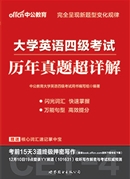热销商品
-
商城价:¥12
-
商城价:¥12
-
商城价:¥12
-
商城价:¥13
-
商城价:¥15
最近浏览过
中公2014年12月大学英语四级考试用书《大学英语四级考试阅读180篇》
商品详情
规格参数
相关商品
用户评价
销售记录
购买咨询
目录
第一部分 词汇理解阅读(30篇)
第一章 答题攻略(1)
第二章 考前特训(5)
答案速递(25)
文章详解(25)
第二部分 长篇阅读(50篇)
第一章 答题攻略(55)
第二章 考前特训(59)
答案速递(181)
文章详解(182)
第三部分 仔细阅读(100篇)
第一章 答题攻略(306)
第二章 人文社会类(312)
本章导读(312)
基础篇(10篇)(312)
答案速递(327)
文章详解(327)
巩固篇(5篇)(337)
答案速递(345)
文章详解(345)
提高篇(5篇)(351)
答案速递(359)
文章详解(359)
第三章 环境健康类(365)
本章导读(365)
基础篇(10篇)(365)
答案速递(380)
文章详解(380)
巩固篇(5篇)(392)
答案速递(399)
文章详解(400)
提高篇(5篇)(405)
答案速递(413)
文章详解(413)
第四章 教育文学类(420)
本章导读(420)
基础篇(10篇)(420)
答案速递(436)
文章详解(436)
巩固篇(5篇)(446)
答案速递(454)
文章详解(454)
提高篇(5篇)(459)
答案速递(467)
文章详解(467)
第五章 经济生活类(473)
本章导读(473)
基础篇(10篇)(473)
答案速递(488)
文章详解(488)
巩固篇(5篇)(497)
答案速递(505)
文章详解(506)
提高篇(5篇)(511)
答案速递(519)
文章详解(519)
第六章 科学探索类(525)
本章导读(525)
基础篇(10篇)(525)
答案速递(540)
文章详解(540)
巩固篇(5篇)(549)
答案速递(557)
文章详解(557)
提高篇(5篇)(562)
答案速递(570)
文章详解(570)
索引(576)
文摘
第一部分 词汇理解阅读(30篇)
第二章 考前特训
■Passage One
Genetically modified (GM) foodstuffs are here to stay. That’s not to say that food produced by 1 agriculture will disappear, but simply that food buying patterns will polarize. It may even be that GM food will become the food of 2 because consumers come to appreciate the health benefits of reduced 3 use.
The reason GM food will not go away is that we need a three-fold increase in food production by the year 2050 to keep 4 with the world’s 5 population growth to ten or eleven billion. It’s not just a question of more mouths to feed either. What is often forgotten is that all these extra people will take up space, reducing the overall land 6 for agriculture.
It may well be that in the long term it is the developing world that benefits most from GM foods. It’s true that for the next ten years or so GM crops may be too expensive. But the lesson of personal computers is applicable here—once the technology has been developed for money-spinning crops, 7 maize, soy beans and cotton, it will become 8 for all. This doesn’t mean, unfortunately, that families will 9 , but severity and duration will be helped by an 10 ability to produce and distribute food.
A) predicted B) common C) conventional D) like
E) available F) disappear G) purpose H) depression
I) improved J) preference K) correlation L) pace
M) pesticide N) affordable O) variety
■Passage Two
Accidents are caused; they don’t just happen. The reason may be easy to see: a shelf out of 1 , a patch of ice on the misfortune—frustration, tiredness or just bad temper—that show what the accident really is, a sort of attack on oneself.
Road accidents, for example, happen frequently after a family quarrel, and we all know people who are accident-prone, so often at 2 with themselves and the world that they seem to cause accidents for themselves and others.
By 3 , an accident is something you cannot 4 or avoid, and the idea which used to be current, that the majority of road accidents are caused by a 5 of criminally careless drivers, is not supported by insurance statistics. These show that most accidents involve ordinary motorists in a moments of carelessness or thoughtlessness.
It is not always clear, either, what sort of conditions make people more likely to have an accident. For instance, the law requires all factories to take safety precautions and most companies have safety committees to make sure the 6 are observed, but still, every day in Britain, some fifty thousand men and women are injured from work 7 to accidents. These accidents are largely the result of human 8 or misjudgment—noise and fatigue, boredom or worry are possible factors which 9 to this. Doctors who work in factories have found that those who drink too much, usually people who have a high 10 level, run three times the normal risk of accidents at work.
A) regulations B) due C) office D) reach
E) minority F) increasing G) anxiety H) predict
I) definition J) access K) odds L) report
M) error N) effects O) contribute
■Passage Three
Zoos have existed for so long that no one knows the origins of the first ones. At one time, zoos were 1 to entertain kings, queens, princes and princesses. Today, there are probably over 500 public zoos 2 the world. The one with the greatest 3 of animals is in Berlin. Years ago, zoos always 4 animals in barred cages, but now zoos try to keep their animals in more natural surroundings. As a result, there is great 5 in the ways animals are treated, housed and bred. One of the best zoos in the United States is at San Diego in California, where the climate makes it possible for the animals to live 6 most of the year. As civilization spreads and natural wildernesses are reduced, zoos have become more important. They 7 places where rare animals can be saved from extinction.
Game reserves have 8 in parts of Europe for hundreds of years for hunting purposes. Today, however, they are usually places where wildlife are safe from hunters and can live and breed 9 by man. One of the largest 10 in the world is the Kruger National Park in South Africa, where elephants, zebras and lions are among the attractions.
A) preparation B) variety C) around D) provide
E) used F) outdoors G) kept H) saving
I) undisturbed J) improvement K) reserves L) passionate
M) reasonable N) existed O) unhappy
■Passage Four
There are rare instances when justice almost ceases to be an abstract 1 . Reward or 2 are out quite independent of human interference. At such times, justice acts like a living force. When we use a phrase like it serves him right, we are, in part, 3 that a certain set of circumstances has enabled justice to act of its own accord.
When a thief was caught on the premises of a large fur store one morning, the shop assistants must have found it 4 to resist the temptation to say ‘it serves him right’. The shop was an old-fashioned one with many large, disused fireplaces and tall, narrow chimneys. Towards midday, a girl heard a muffled cry coming from 5 one of the walls. As the cry was 6 several times, she ran to tell the manager who promptly rang up the fire-brigade. The cry had certainly come from one of the 7 , but as there were so many of them, the firemen could not be certain which one it was. They located the right chimney by tapping at the walls and listening for the man’s cries. After chipping through a wall which was eighteen inches 8 , they found that a man had been trapped in the chimney. As it was extremely narrow, the man was unable to move, but the firemen were 9 able to free him by cutting a huge hole in the wall. The sorry-looking, blackened figure that emerged, at once admitted that he had tried to break into the shop during the night but had got 10 in the chimney. He had been there for nearly ten hours. Justice had been done even before the man was handed over to the police.
A) stuck B) various C) eventually D) behind
E) impossible F) create G) repeated H) permitted
I) admitting J) punishment K) conception L) entirely
M) chimneys N) thick O) disturbing
■Passage Five
No one knows exactly how many disabled people there are in the world, but 1 suggest the figure is over 450 million. The number of disabled people in India alone is probably more than double the total 2 of Canada. In the United Kingdom, about one in ten people have some disability. Disability is not just something that happens to other people. As we get older, many of us will become less mobile, hard of hearing or have failing 3 .
Disablement can take many forms and occur at any time of life. Some people are 4 with disabilities. Many others become disabled as they get older. There are many progressive disabling diseases. The longer time goes on, the 5 they become. Some people are disabled in accidents. Many others may have a period of disability in the form of a mental illness. All are affected by people’s 6 towards them.
Disabled people face many physical 7 . Next time you go shopping or to work or visit friends, imagine how you would 8 if you could not get up steps, or on to buses and trains. How would you cope if you could not see where you were going or could not hear the traffic? But there are other barriers: prejudice can be even harder to break down and ignorance inevitably represents by far the greatest barrier of all. It is almost impossible for the able-bodied to fully 9 what the severely disabled go through, so it is important to draw 10 to these barriers and show that it is the individual person and their ability, not their disability, which counts.
A) attention B) eyesight C) born D) reverse
E) attitude F) worse G) desperate H) exposed
I) require J) barriers K) manage L) estimates
M) appreciate N) connection O) population
文章详解
Passage One
【译文】
转基因食品仍然存在。这并不是说,由传统农业生产的食品将从市场上消失,只是说购买食品的模式将出现两极分化。消费者也许会更偏向于转基因食品,因为他们开始看重减少农药使用对健康的好处。
转基因食品不会消失的原因是,到2050年,我们的食品产量增长两倍才能跟上世界人口预计增长至100亿到110亿的步伐。这不仅仅是更多人需要供养的问题。通常被遗忘的是,所有这些额外的人口会占用空间,从而减少了整体的农业用地。
从长期来看,可能发展中国家从转基因食品中获益最多。的确,在未来十年左右,转基因作物可能很贵。但是个人电脑的经验在这里很适用——转基因技术一旦能够培养出赚大钱的作物,如玉米、大豆和棉花,这一技术就会渐渐普及,让所有人都能买得起。但这并不意味着植物的科将会消失,而是生产和分发食物能力的提高会帮助加重严重程度,延长持续时间。
【答案解析】
1. C 此空位于一个名词的前面,故这里填形容词,根据前面的“这并不是说……”,可以看出这里所说的与前句是对立的,与转基因对立的就是传统农业,故选conventional。
2. J 根据前面的of可以推测这里需要一个名词来限定food,而从后面可知人们会因为转基因食品的优势而喜欢它们,故选preference。
3. M reduce后面跟名词use,意为“减少……的使用”,只有pesticide符合题意,意为“减少杀虫剂的使用”。
4. L keep pace with是固定搭配,意为“跟上……的脚步”。
5. A 这里填一个形容词修饰population,作者前面提到2050年,届时的人口数只能估算,在可选的形容词中只有predicted符合题意。
6. E 此句不缺成分,故需要填一个副词或者形容词作后置定语修饰land,可选的只有available,意为“可用的耕地”。
7. D 后面的玉米、大豆和棉花都是前面crops的一部分,是举例说明,故这里填like,意为“像……”。
8. N 观察此句开头的but,应该是前后的转折,前面说买不起,后面一定为可以买得起,故选affordable。
9. F will后面跟动词原形,可选的动词中只有disappear符合题意。
10. I 此空位于an和ability之间,需要形容词,根据前面说到的技术革新可知,可以影响严重程度和持续时间的是日益提高的技术能力,可选形容词中只有improved符合题意。
Passage Two
【译文】
事故的发生都有原因,并非偶然。其中的原因可能显而易见:够不着书架,面临险境——失败、疲劳或只是坏脾气,这些都展示什么是真正的事故——一种自我攻击。
例如,交通事故经常发生在家庭争吵后,我们都知道什么人易出事故,这些人经常与自己和世界格格不入,就好像是这些给自己和他人造成了事故。
根据定义,事故是无法预测或避免的事情,当前认为大多数的交通事故是由少数刑事犯罪的粗心司机引起的,但保险统计数据说明并非如此。这些表明大多数事故是因为普通司机某一刻的粗心大意或轻率所致。
同样,通常也不清楚什么样的情况会使人们更有可能出事故。例如,法律要求所有工厂采取安全措施,多数公司设有安全委员会来确保遵守法规,但英国每天仍然约有五万人在工作中意外受伤。这些事故主要是由于人为错误或错误判断——噪音和疲劳、厌倦或担心都可能是导致这个问题的因素。工厂的医生发现,那些酗酒过多的人,一般焦虑水平极高,发生事故的概率是正常工作事故风险的三倍。
【答案解析】
1. D out of reach是固定搭配,意为“触碰不到”,够不到的架子可能造成危险,故选D。
2. K be at odds with是固定搭配,意为“与……不和”,此处意为“与自己较劲”。
3. I 这里需要一个名词,后面是对于accident的解释,可以猜测此处意思是“定义上”,by definition是固定搭配。
4. H 这里需要动词原形,符合题意的只有predict,表示“意外不可预测”。
5. E 根据空前的冠词a可以推测这里填名词,可以与粗心的司机搭配的只有minority,意为“少数的”,故选E。
6. A 根据空前的冠词the和后空的are可以看出这里填复数名词,在根据observe“遵守”,可知符合题意的只有regulations,意为“遵守规则”。
7. B due to意为“因为”,是固定搭配,此处的意思是“因为意外在工作中受伤”。
8. M or表示并列关系,后面是名词,故这里也填名词,意为“因为人的____造成事故”,符合题意的是error,故选M。
9. O 这里的分句缺少谓语动词且与介词to搭配,可选的动词只剩下access和contribute,只有contribute符合题意,意为“造成……的因素”。
10. G 这里需要词修饰level,可以是形容词,也可以是名词与level配合,根据上下文和选项,可以造成意外的是处于高度焦虑的人们,故选G。
Passage Three
【译文】
动物园已经存在很久了,但却没有人知道第一批动物园的起源。以前,动物园是用来供国王、王后、王子和公主们娱乐的。今天,全世界大约有500多个公共动物园。动物种类最多的动物园在柏林。几年前,动物园将动物养在有栅栏的笼子里,但现在它们尝试将动物养在更加自然的环境中。因此,对待、安置和饲养动物的方式都有了很大的进步。美国最好的动物园之一是加利福尼亚州的圣迭戈动物园,那里的气候可以允许动物一年中大部分时间都生活在室外。由于文明的传播和自然野生动物的减少,动物园变得更加重要了。稀有动物在动物园可以受到保护,免于灭绝。
以狩猎为目的的狩猎保护区已经在欧洲部分地区存在好几百年了。但是现在,没人在这些狩猎保护区里狩猎,野生动物在这里生活、繁殖,不受人类打扰。世界上最大的狩猎保护区是南非的克鲁格国家公园,那里有大象、斑马和狮子。
【答案解析】
1. E 根据空前were后的不定式可知,此处应填入动词被动语态,故填动词的过去分词,而后面的内容是动物园的用途,故填used。
2. C 根据句意可知,此处缺少状语,around the world为固定搭配,意为“全世界”,作地点状语。
3. B 根据空前形容词可知,此处应填名词,合适的名词只有variety,意为“世界上动物种类最多的动物园在柏林”。
4. G 根据语境可知,这里需要一个谓语动词,且为过去时,后面的内容是在笼子里,故此处应填“把动物关在笼子里”,故选kept。
5. J 根据空前形容词great可知,这里填名词,描述现在人们对待动物的方式,根据后面的内容看,现在人们很注意动物的生存环境,因此比以前有了很大进步,故这个名词为improvement。
6. F 从整句结构可判断,此处缺少状语,所以应填入副词,故选outdoors,意为“在户外生活”,作地点状语。
7. D 根据整句结构可知,此空应填入谓语动词,再根据时态可知,此处应填动词原形,故只能选provide,意为“动物园为动物提供了生存场所”。
8. N 根据for hundreds of years和空前的have可知,这里应该填动词的过去分词,而此句是在说狩猎保护区在欧洲的历史,动词应该表示存在,故选existed。
9. I 根据后面的by可以猜测这里是一个被动式,此处为过去分词,剩下的动词只有undisturbed合适,意为“在动物园中生活不被人打扰”。
10. K 根据空前one of the largest可知,此空应填入名词复数,剩下的名词中只有reserves符合题意,意为“世界上最大的保护区之一”。
Passage Four
【译文】
在个别情况下,正义不再是一种抽象概念。奖惩的实施是不受人的意志支配的。在这种时候,正义像一种有生命的力量行使其职能。当我们说“他罪有应得”这句话的时候,我们也就在某种程度上承认了某种特定的环境使得正义自动地起了作用。
当一个小偷某天上午在一家大型皮货店里被人抓住的时候,店员一定会忍不住说:“他罪有应得。”那是一座老式的房子,店里有许多废置不用的大壁炉和又高又窄的烟囱。快到中午的时候,一个女售货员听见从一堵墙里传出一种模糊的叫声。由于这种喊叫声重复了几次,她跑去报告经理,经理当即给消防队打了电话。喊叫声肯定是从烟囱里传出来的,然而,因为烟囱太多,消防队员无法确定到底是哪一个。他们通过敲击烟囱听叫声来确定传出声音的那个烟囱。他们凿透了18英寸厚的墙壁,发现有个人卡在烟囱里。由于烟囱太窄,那人无法动弹。消防队员在墙上挖了个大洞,才终于把他解救出来。那个满脸沮丧、浑身漆黑的家伙从烟囱里一出来,就承认头天夜里他企图到店里行窃,但让烟囱卡住了。他已经在烟囱里被困了将近10个小时。在那人还没被送交给警察之前,正义就已得到了伸张。
【答案解析】
1. K 根据前面的冠词和形容词可知这里填名词单数,选项中的名词有punishment,conception和chimneys。可以和“抽象”搭配的只有conception。
2. J根据and可知, 这里缺一个可以和reward并列的名词,符合题意的只有punishment,意为“奖赏和惩罚”。
3. I 此空应接前面的we are,故为动词现在进行时,选项中只能填admitting表示“承认”。
4. E find sth.+adj. 是固定搭配,这里填形容词,可选的词中应填impossible,意为“人们无法抗拒这种诱惑”。
5. D 根据后面的one of the walls,可知这里可以填一个可以接地点的介词,可以填的只有behind,意为“在其中的一堵墙后”。
6. G 根据空后several times和主语cry可知,此句应表示“哭声重复了很多次”。再根据空前was,故这里应填入repeated,表示重复了很多次,故选G。
7. M 根据空前的冠词可知这里应填名词,剩下的名词只有chimneys,另外,根据下句的They located the right chimney ...也可知,此处应填入chimneys。意为“哭声从其中的一个烟囱中传来”。
8. N 此处意为“墙有18英寸厚”,故选thick。
9. C 此句不缺成分,可以猜测填副词,根据后面把小偷救出来可断定符合题意的只有eventually,意为“最终把他救出”。
10. A 根据文意推测小偷是卡在了烟囱里。get stuck in是固定搭配,意为“卡在……”。
Passage Five
【译文】
没有人确切地知道世界上有多少残疾人,但估计表明这一数字超过4.5亿。仅印度的残疾人数就可能是加拿大总人口的两倍之多。在英国,约1/10的人有残疾。残疾不仅仅是发生在其他人身上的事情。当我们变老的时候,我们中的大多数人会行走困难,听力或视力下降。
伤残有许多形式,并可在生活中的任何时候发生。有些人天生残疾。其他许多人随着年龄的增长变得残疾。有许多种慢性致残的疾病。时间越长,残疾就会变得越严重。有些人因事故致残。其他很多人可能有一段时间的精神疾病。这些残疾人都会因别人对他们的态度而受到影响。
残疾人面临许多肢体障碍。下次你去购物、工作或拜访朋友时,想象一下如果不能上台阶、上公交车和火车,你会怎么办? 如果看不见去哪里,或听不到道路上车辆的声音,该怎么办?但还有其他障碍:偏见更难被打破以及忽视迄今为止不可避免地成为最大障碍。身体健康的人几乎不可能充分理解重度残疾人的经历。因此,关注这些障碍,并且表明有价值的是个人和他们的能力,而不是残疾是重要的。
【答案解析】
1. L 根据后面的谓语动词可以判断这里需要一个名词作主语,且为可以提供数据的名词,故选estimates。
2. O 根据空前the total可知此处应填名词,而这里对比的是人口数,故选population。
3. B 此处需要名词,此句是在讲人老之后身体的变化,在可选名词中只有eyesight与身体机能相关。故选B。
4. C 这里是讲人残疾的方式。后面as they get older描述人变老之后,可以猜测前面是在讲先天的残疾,而be born with ...,意为“天生……”,故选C。
5. F 观察此句句式,为两个比较级搭配表示“越……,越……”,故此处填形容词比较级,符合的只有worse。
6. E 根据空前所有格people’s可知,此处应填名词,讲的是残疾人产生心理问题的原因,从选项中的名词可以猜测这里是他人的态度对他们的影响,而attitude toward是固定搭配,意为“对……的态度”。
7. J 此处填名词,后面讲的是残疾人在生活中的各种不便,他们面对的是身体的障碍,或根据此段第四句But there are other barriers可知,此空处讲physical barriers。故选barriers。
8. K 从前面的would推断此处填动词原形,根据上下文推测此处是说“想象一下如果你不能上楼梯了你会怎么办”,符合题意的是manage。
9. M 根据前面的to可推测这里填动词原形,推测句意为“一个身体完好的人没法想象身体有残疾的人的经历”,appreciate符合题意。
10. A 这里需要名词,draw attention to意为“注意”,是固定搭配。
新都网(http://www.newdu.com)提示:其余部分暂略,详情请查阅图书。
- 最有用的评价:
暂无最有用的评论
- 不促销














